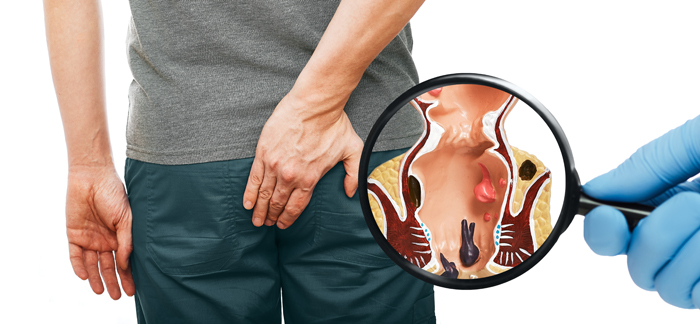Piles Treatment in Koramangala, Bangalore
Hemorrhoids are common, but we do not notice them until they are symptomatic. Hemorrhoids, called piles, are swollen and inflamed masses of veins around the anus or the lower rectum. It is often cured without any surgery and with some lifestyle changes. If not, there are surgical treatments available for the hemorrhoids.
To seek treatment, you can visit any of the general surgery hospitals in Bangalore. Or you can search online for a general surgeon near me.
What do we need to know about hemorrhoids?
Hemorrhoids are vascular tissues containing blood vessels and fibers in the lower part of the rectum. The blood vessels bulge due to increased pressure within the lower abdomen. It will further weaken the tissues in the hemorrhoids, allowing them to fall into the anal canal. These swollen hemorrhoids are referred to as piles.

What are the types of hemorrhoids?
Hemorrhoids are of two types:
- Internal Hemorrhoids: This type of hemorrhoids form within the lining of your anus and inside the rectum. They are usually not visible and are painless. When hemorrhoids are pushed into the anal opening, they are known as prolapsed hemorrhoids leading to pain and discomfort.
- External Hemorrhoids: They are the most common type of hemorrhoids seen as bulges in and around the anus.
What are the causes of hemorrhoids?
Hemorrhoids occur when the pressure in the veins around the anus or rectum is high. In the following circumstances, piles may occur because of:
- Age
- Constipation or chronic diarrhea
- Obesity
- Pregnancy and childbirth
- Heavy lifting
What are the symptoms of hemorrhoids?
Symptoms might differ for external and internal hemorrhoids.
- External hemorrhoids
- Rectal Itching
- A bulge or lump near the anus
- Internal hemorrhoids
- Fecal leakage
- Prolapse (tissue that bulges outside the anal opening)
- Painful bowel movements
- Rectal bleeding
When do you need to consult a doctor?
Consult your surgeon when you notice any symptoms of hemorrhoids even after proper home treatment orif you see any blood in your fecal matter or any rectal bleeding.
You can request an appointment at Apollo Spectra Hospitals, Koramangala, Bangalore.
Call 1860 500 2244 to book an appointment.
How can hemorrhoids be diagnosed?
External hemorrhoids are visible, unlike internal hemorrhoids. So diagnosing them might include examining your anal canal and rectum with an anoscope, proctoscope or sigmoidoscope. A doctor performs a colonoscopy to know whether you have a risk of colorectal cancer or any other digestive system diseases.
What are the treatments for hemorrhoids?
- Non-surgical treatment
If you notice any symptoms of hemorrhoids at an early stage, consider the following options:- Apply topical hemorrhoid creams
- Use pain relievers upon advice from a doctor.
- Use a sitz bath 2 or 3 times a day.
- Surgical treatment
- Minimally invasive procedures
In case of persistent bleeding and painful hemorrhoids, a doctor recommends one of the following procedures that usually do not require anesthesia.
i.Rubber Band Ligation: This is the most effective way to treat internal hemorrhoids that protrude during bowel movements. A small rubber band is placed over the hemorrhoid, cutting off its blood supply. Hemorrhoid becomes weak, and the band falls off in a few days.
ii.Injection (Sclerotherapy) and Coagulation: These methods are used on internal hemorrhoids that do not protrude. In the first case, a chemical solution is injected into the hemorrhoid tissue, and hemorrhoids exposed to laser light in the latter case. Both methods are painless and cause hemorrhoids to harden and shrivel. - Surgical procedures
i.Hemorrhoids stapled and sutured: These methods can shrink internal tissues but are more painful than rubber band ligation and less painful than hemorrhoidectomy. It is not suitable for external hemorrhoids.
ii.Hemorrhoidectomy: This is the most effective and complete way of treating hemorrhoids by separating the swollen tissue. This surgery can be used for both internal and external hemorrhoids.
- Minimally invasive procedures
What are the complications from hemorrhoids?
The complications of hemorrhoids post-surgery are rare, but common complications include bleeding, urinary infection and iron deficiency due to blood loss.
How can hemorrhoids be prevented?
Understanding the causes and risk factors may help you to prevent hemorrhoids:
- Stay hydrated
- Exercise regularly
- Avoid strained bowel movements
- Avoid sitting, especially on hard surfaces.
- Consume a healthy, high-fiber diet.
Conclusion
Hemorrhoids are varicose veins of the anus and the rectum. The signs and symptoms are to be carefully evaluated to avoid the complexity of the disease. Treatment of hemorrhoids ranges from dietary and lifestyle modification to radical surgery, depending on the degree and severity of symptoms.
Hemorrhoid creams and suppositories can relieve pain and itching temporarily. They can stop hemorrhoids from growing large, but it cannot shrink them completely. So, it is better to take suggestions from your surgeon for treatment.
An anal fissure is a tear in the tissue caused by extended periods of diarrhea or hard stool. Both hemorrhoids and anal fissures have common symptoms like rectal bleeding and anal pain. So, it is impossible to self-diagnose yourself. Consult your doctor for a proper diagnosis.
If external hemorrhoids are left untreated, they can develop into a thrombosed hemorrhoid. It occurs when a blood clot formed in the hemorrhoid vein obstructs the blood flow.
Symptoms
Our Top Specialities
NOTICE BOARD
CONTACT US
CONTACT US
 Book Appointment
Book Appointment


.svg)
.svg)
.svg)
.svg)








